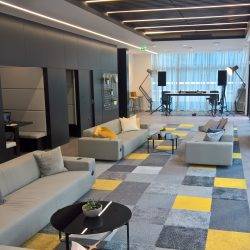April 12, 2019
Manchester is the number one tech location outside of London
 The UK’s regional cities are competing harder than ever with London to become the location of choice for the tech sector. According to CBRE’s report ‘Tech Cities: Exploring tech hotspots in the UK regions’ Manchester ranks number one amongst the top 10 UK tech location outside of London, but Scotland features highly with Glasgow and Edinburgh in second and third position respectively. Birmingham has risen three places, from seventh to fourth position but smaller conurbations such as such as Reading, Oxford, Cambridge, Southampton, Brighton and Bracknell also feature, based on their concentrations of tech employment, tech businesses and high education levels. More cities are competing for the very top spots in the ranking
The UK’s regional cities are competing harder than ever with London to become the location of choice for the tech sector. According to CBRE’s report ‘Tech Cities: Exploring tech hotspots in the UK regions’ Manchester ranks number one amongst the top 10 UK tech location outside of London, but Scotland features highly with Glasgow and Edinburgh in second and third position respectively. Birmingham has risen three places, from seventh to fourth position but smaller conurbations such as such as Reading, Oxford, Cambridge, Southampton, Brighton and Bracknell also feature, based on their concentrations of tech employment, tech businesses and high education levels. More cities are competing for the very top spots in the ranking





























February 14, 2019
Digital transformation requires more than just new technology
by Arnab Banerjee • Comment, Technology
More →